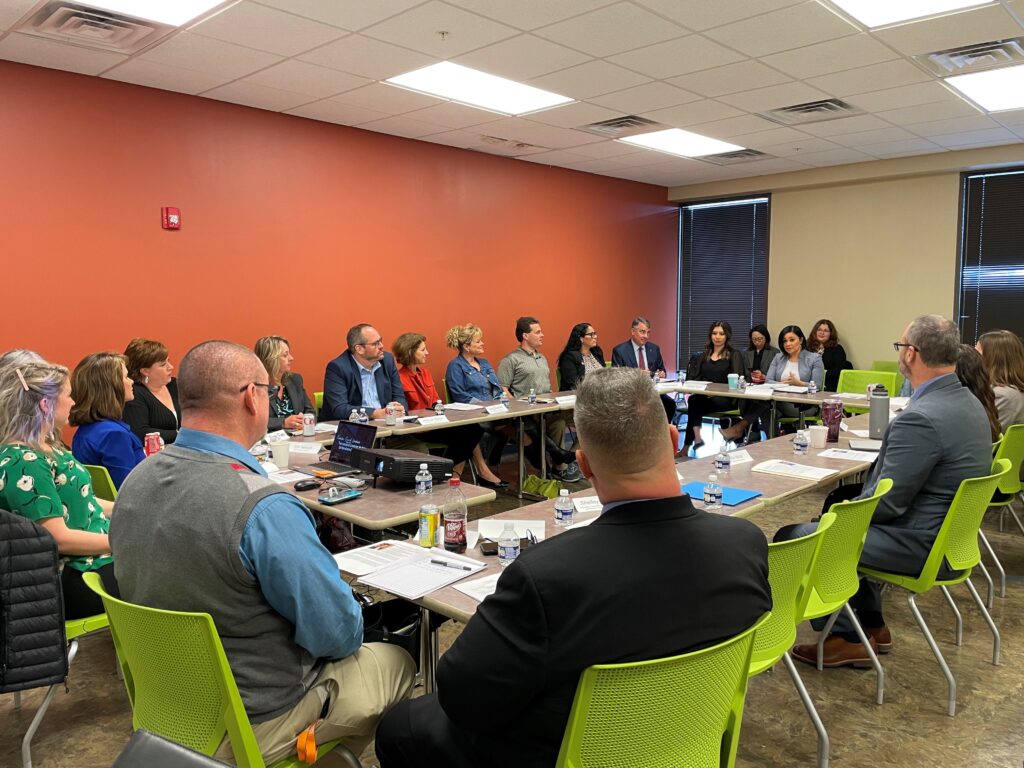
Courtesy U.S. Department of Justice
Defendants who can’t afford to pay for their own lawyer are often up against several challenges — addiction, poverty, homelessness.
A Tennessee program pairs the defendant with a social worker to help address those underlying issues, and the U.S. Department of Justice is touting that program as a model for other states.
Rachel Rossi is the director of the Office for Access to Justice at the DOJ. She visited Nashville as part of a nationwide tour celebrating the 60th anniversary of the Supreme Court case that guaranteed the right to counsel.
Her office aims to make the public defense system more equitable, and she says that means doing better for people who are struggling.
“The criminal justice system is just not designed to help people who have mental health issues,” Rossi says. “And what bringing a social worker into the conversation does is it really allows us to get to the actual core of the issue and to actually heal and help and provide resources and support so that a person is not just cycling in and out of jail over and over and over.”
Tennessee’s Public Defender Social Worker program uses a portion of federal funding to try to interrupt that cycle — specifically, the Edward Byrne Memorial Justice Assistance Grant, or JAG for short.
Rossi says it’s a great example of how JAG money can be used to improve the legal system.
“It saves money by reducing how many times people are cycling in and out of jail for these types of offenses,” she says. “And it also reduces the caseloads of prosecutors because we’re dealing with the underlying issue rather than allowing the justice system to just sort of cycle someone in and out.”
And she says, most importantly, it helps connect people to long-term solutions that can keep them out of the system in the future.